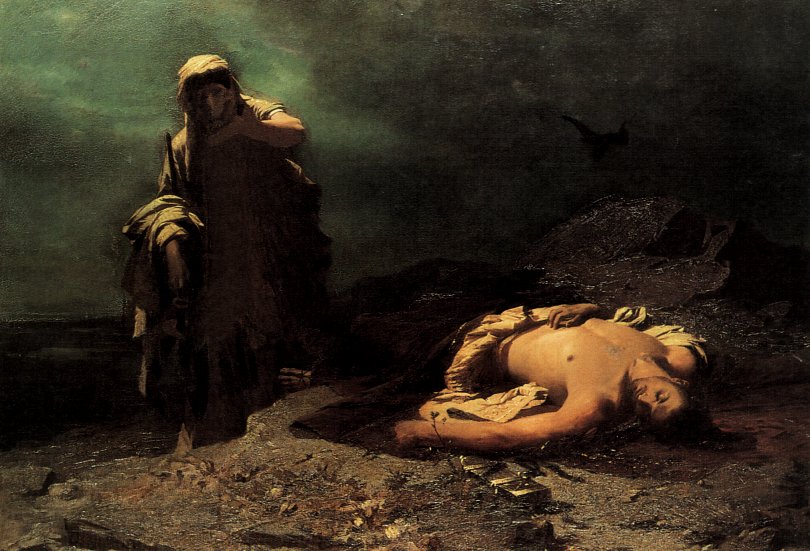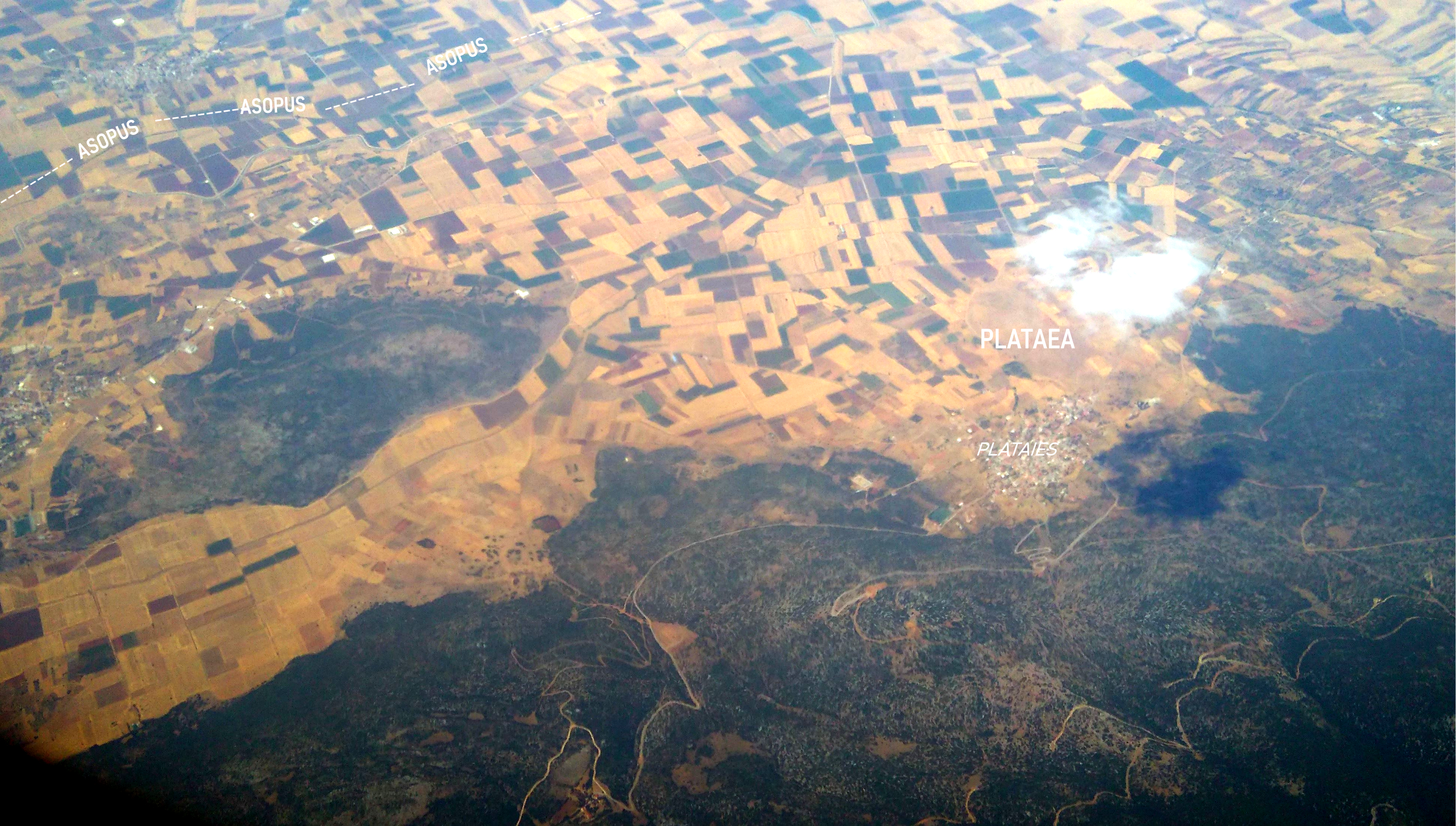|
Euryganeia
In Greek mythology, Euryganeia ( grc, Εὐρυγάνεια, ''Eurygáneia'') was a Theban queen. Family Euryganeia was either a daughter of Hyperphas, and thus, sister to Euryanassa. In some sources, she was described as Jocasta's sister, which would make her Oedipus' aunt. Euryganeia was occasionally named as Oedipus' second wife and the mother of his children, Polynices, Eteocles, Ismene and Antigone. According to Pausanias, the statement at ''Odyssey'' 11.274—that the gods ''soon'' made the incestuous marriage between Oedipus and his mother Jocasta known—is incompatible with her bearing four children to him. The geographer cites the '' Oedipodeia'' as evidence for the fact that Euryganeia was actually the mother of Oedipus' brood. Pherecydes, on the other hand, attributed two sons (named Phrastor and Laonytus) to the marriage of Jocasta and Oedipus, but agreed that the more famous foursome were the children of Euryganeia. Mythology There was a painting of Eurygan ... [...More Info...] [...Related Items...] OR: [Wikipedia] [Google] [Baidu] |
Hyperphas
In Greek mythology, Hyperphas (Ancient Greek: Ὑπέρφαντος) was a leader of the Phlegyans and an ally of the Thebans. He was the father of Euryganeia who, according to Pausanias, married Oedipus after the death of Iocaste; Pausanias also maintains that it was she, and not Iocaste, who bore Oedipus his four children (Eteocles, Polynices, Antigone and Ismene). Defending this version, Pausanias refers to the poem ''Oedipodea'' and to a painting by Onasias, which depicted Euryganeia in grief over the conflict between her sons. According to Hesiod, Hyperphas had another daughter, Euryanassa, who became the mother of Minyas by Poseidon.Scholia on Homer, ''Odyssey'' 11.326 = Hesiod, fr. 62 ( Loeb edition, 1914) Notes References * Apollodorus, ''The Library'' with an English Translation by Sir James George Frazer, F.B.A., F.R.S. in 2 Volumes, Cambridge, MA, Harvard University Press; London, William Heinemann Ltd. 1921. Online version at the Perseus Digital Library. [...More Info...] [...Related Items...] OR: [Wikipedia] [Google] [Baidu] |
Astymedusa
In Greek mythology, Astymedusa ( grc, Ἀστυμέδουσα, ''Astymédousa'') or simply Medusa (Greek myth), Medusa, was a Mycenaean Greece, Mycenaean princess as daughter of King Sthenelus of Mycenae, Sthenelus and Nicippe, daughter of Pelops. She was occasionally named as a later wife of Oedipus. After parting with Jocasta or after the death of Euryganeia, who was his second wife, Oedipus married Astymedousa. Astymedusa accused Polynices and Eteocles of attempting to rape her, thus driving Oedipus into a frenzy. This is held as an alternate cause for the curse which led to the fraternal discord at the heart of the myth of the wars at Thebes, Greece, Thebes.. Notes References * Pausanias (geographer), Pausanias, ''Description of Greece'' with an English Translation by W.H.S. Jones, Litt.D., and H.A. Ormerod, M.A., in 4 Volumes. Cambridge, MA, Harvard University Press; London, William Heinemann Ltd. 1918. Online version at the Perseus Digital Library* Pausanias, ''Graeciae ... [...More Info...] [...Related Items...] OR: [Wikipedia] [Google] [Baidu] |
Antigone
In Greek mythology, Antigone ( ; Ancient Greek: Ἀντιγόνη) is the daughter of Oedipus and either his mother Jocasta or, in another variation of the myth, Euryganeia. She is a sister of Polynices, Eteocles, and Ismene.Roman, L., & Roman, M. (2010). The meaning of the name is, as in the case of the masculine equivalent Antigonus, "worthy of one's parents" or "in place of one's parents". She appears in the three 5th century BC tragic plays written by Sophocles, known as the three Theban plays, and she is the main protagonist of the eponymous tragedy ''Antigone''. In Sophocles The story of Antigone was addressed by the fifth-century BC Greek playwright Sophocles in his Theban plays: ''Oedipus Rex'' Antigone and her sister Ismene are seen at the end of '' Oedipus Rex'' as Oedipus laments the "shame" and "sorrow" he is leaving his daughters to. He then begs Creon to watch over them, but in his grief reaches to take them with him as he is led away. Creon prevents hi ... [...More Info...] [...Related Items...] OR: [Wikipedia] [Google] [Baidu] |
Euryanassa
In Greek mythology, Euryanassa (Ancient Greek: Εὐρυάνασσα) is a name that may refer to: *Euryanassa, daughter of the river-god Pactolus. She was the wife of Tantalus, and one of the possible mothers of Pelops, Broteas and Niobe. *Euryanassa, daughter of Hyperphas, leader of the Phlegyans and thus, sister to Euryganeia, wife of Oedipus. She was the mother of Minyas by Poseidon. *Euryanassa, a surname of HebeHesychius of Alexandria, s.v. ''Euryanassa'' Notes References * Lucius Mestrius Plutarchus, ''Moralia'' with an English Translation by Frank Cole Babbitt. Cambridge, MA. Harvard University Press. London. William Heinemann Ltd. 1936Online version at the Perseus Digital Library. * |
Polynices
In Greek mythology, Polynices (also Polyneices) (; grc, Πολυνείκης, Polyneíkes, lit= manifold strife' or 'much strife) was the son of Oedipus and either Jocasta or Euryganeia and the older brother of Eteocles (according to Sophocles' "Oedipus at Colonus"). When his father, Oedipus, was discovered to have killed his father and married his mother, he was expelled from Thebes, leaving his sons Eteocles and Polynices to rule. Because of a curse put on them by their father Oedipus, the two sons did not share the rule peacefully and died as a result, killing each other in battle for control over Thebes. Mythology Oedipus's curse In the ''Thebaid'', the brothers were cursed by their father for their disrespect towards him on two occasions. The first of these occurred when they served him using the silver table of Cadmus and a golden cup, which he had forbidden. The brothers then sent him the haunch of a sacrificed animal, rather than the shoulder, which he deserved. ... [...More Info...] [...Related Items...] OR: [Wikipedia] [Google] [Baidu] |
Oedipodeia
The ''Oedipodea'' ( grc, Οἰδιπόδεια) is a lost poem of the Theban cycle, a part of the Epic Cycle (). The poem was about 6,600 verses long and the authorship was credited by ancient authorities to Cinaethon (), a barely known poet who lived probably in Sparta. Eusebius says that he flourished in 764/3 BC. Only three short fragments and one testimonium survived. It told the story of the Sphinx and Oedipus and presented an alternative view of the Oedipus myth. According to Pausanias,Pausanias. ''Description of Greece'', 9.5.10-1; West, ''Fr.'' 1. Cinaethon states that the marriage between Oedipus and his own mother, Jocasta was childless; his children had been born from another engagement with Euryganeia (), daughter of Hyperphas (). That is all we know about these two characters. A small glimpse of Cinaethon's style survives in Plutarch Plutarch (; grc-gre, Πλούταρχος, ''Ploútarchos''; ; – after AD 119) was a Greek Middle Platonist philosophe ... [...More Info...] [...Related Items...] OR: [Wikipedia] [Google] [Baidu] |
Eteocles
In Greek mythology, Eteocles (; ) was a king of Thebes, the son of Oedipus and either Jocasta or Euryganeia. Oedipus killed his father Laius and married his mother without knowing his relationship to either. When the relationship was revealed, he was expelled from Thebes. The rule passed to his sons Eteocles and Polynices. However, because of a curse from their father, the two brothers did not share the rule peacefully and died as a result, ultimately killing each other in battle for control of the city. Upon his death, Eteocles was succeeded by his uncle, Creon. Etymology The name translates as "truly glorious", from ἐτεός (eteós, “true”) + -κλῆς (-klês < kleos “glory”). It also appears in earlier form ''*Etewoklewes'' (). '' Tawagalawas'' is thought to be the Hittite rendition ... [...More Info...] [...Related Items...] OR: [Wikipedia] [Google] [Baidu] |
Pherecydes Of Athens
Pherecydes of Athens ( grc, Φερεκύδης) (fl. c. 465 BC), described as an historian and genealogist, wrote an ancient work in ten books, now lost, variously titled "Historiai" (''Ἱστορίαι'') or "Genealogicai" (''Γενελογίαι''). He is one of the authors (= ''FGrHist'' 3) whose fragments were collected in Felix Jacoby's ''Die Fragmente der griechischen Historiker''. He is generally thought to be different from the sixth-century Pre-Socratic philosopher Pherecydes of Syros, who was sometimes mentioned as one of the Seven Sages of Greece and was reputed to have been the teacher of Pythagoras. Although the ''Suda'' considers them separately, he is possibly the same person as Pherecydes of Leros.Sweeneypp. 47–48 ''Suda The ''Suda'' or ''Souda'' (; grc-x-medieval, Σοῦδα, Soûda; la, Suidae Lexicon) is a large 10th-century Byzantine encyclopedia of the ancient Mediterranean world, formerly attributed to an author called Soudas (Σούδας) or ... [...More Info...] [...Related Items...] OR: [Wikipedia] [Google] [Baidu] |
Phrastor
In Greek mythology, the name Phrastor (Ancient Greek: Φράστωρ) may refer to: *Phrastor, son of Pelasgus and Menippe, daughter of Peneus. He was the father of Amyntor, grandfather of Teutamides, and great-grandfather of Nanas. *Phrastor, in a rare version of the myth, son of Oedipus and Jocasta and brother of Laonytus. The brothers fought against Erginus of Orchomenus and fell in the battle. *Phrastor, victor of javelin throw during the first Olympic games established by Heracles.Pindar, ''Olympic Odes'10.71/ref> Notes References * Dionysius of Halicarnassus. ''Roman Antiquities, Volume I: Books 1-2''. Translated by Earnest Cary. Loeb Classical Library No. 319. Cambridge, Massachusetts: Harvard University Press, 1937Online version by Bill Thayer * Fowler, R ... [...More Info...] [...Related Items...] OR: [Wikipedia] [Google] [Baidu] |
Plataea
Plataea or Plataia (; grc, Πλάταια), also Plataeae or Plataiai (; grc, Πλαταιαί), was an ancient city, located in Greece in southeastern Boeotia, south of Thebes.Mish, Frederick C., Editor in Chief. “Plataea.” '' Webster’s Ninth New Collegiate Dictionary''. 9th ed. Springfield, MA: Merriam-Webster Inc., 1985. , (indexed), and (deluxe). It was the location of the Battle of Plataea in 479 BC, in which an alliance of Greek city-states defeated the Persians. Plataea was destroyed in the Peloponnesian War by Thebes and Sparta in 427 BC, and rebuilt in 386. The modern Greek town of Plataies is built near its ruins. Alliance with Athens and presence at Marathon Herodotus wrote that, in order to avoid coming under Theban hegemony, Plataea offered to "put themselves into Spartan hands". However, the Spartans refused this offer and, wishing to cause mischief between the Boeotians and Athens, recommended that the Plataeans ally themselves with Athens inste ... [...More Info...] [...Related Items...] OR: [Wikipedia] [Google] [Baidu] |
Pherecydes Of Syros
Pherecydes of Syros (; grc-gre, Φερεκύδης ὁ Σύριος; fl. 6th century BCE) was an Ancient Greek mythographer and proto-philosopher from the island of Syros. Little is known about his life and death. Some ancient testimonies counted Pherecydes among the Seven Sages of Greece, although he is generally believed to have lived in the generation after them. Others claim he was either a student of Pittacus, the teacher of Pythagoras, or a well-traveled autodidact who had studied secret Phoenician books. Pherecydes wrote a book on cosmogony, known as the "Pentemychos" or "Heptamychos". He was considered the first writer to communicate philosophical ideas in prose as opposed to verse. However, other than a few short fragments preserved in quotations from other ancient philosophers and a long fragment discovered on an Egyptian papyrus, his work is lost. However, it survived into the Hellenistic period and a significant amount of its content can be conjectured indirectly ... [...More Info...] [...Related Items...] OR: [Wikipedia] [Google] [Baidu] |

.jpg)

